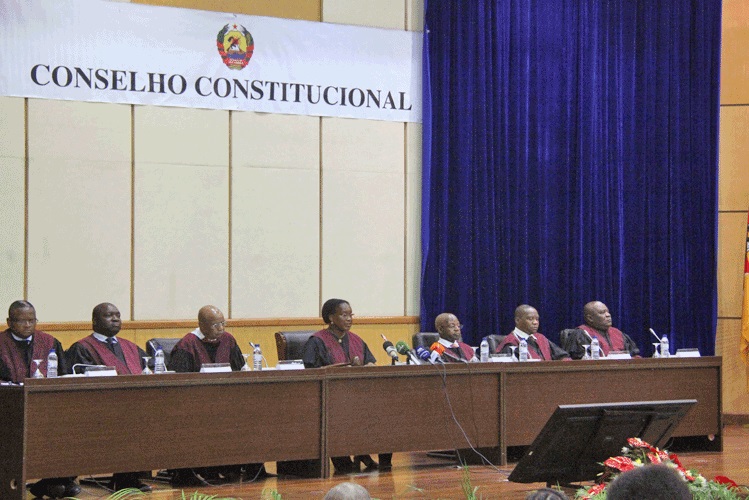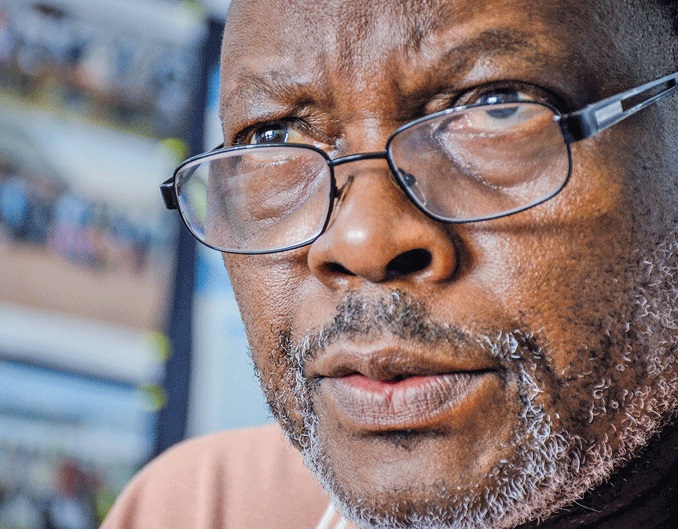Mozambique: Former Governor of Sofala, Felisberto Tomás, has died
Mozambique Elections: ‘Unprecedented’ number of appeals puts pressure on Constitutional Council – Mbilana

FILE - For illustration purposes only. [File photo: FM]
Electoral law pundit Guilherme Mbilana argued on Thursday that the high number of appeals concerning the local elections in Mozambique is the result of greater mastery of the law, and that the time that the Constitutional Council is taking to pronounce in the face of “pressure” is “understandable”.
“The number of appeals is much greater (…) Not only did it exceed the average in terms of quantity, but also in terms of complexity,” Mbilana explained in an interview with Lusa.

Mbilana was among the group of experts who, between 2021 and the end of 2023, trained members of the political parties that would compete in the ballot, along with judges that currently make up the courts of first instance (district courts).
In previous ballots, Mbilana continued, around 90% of political parties’ appeals were rejected or were not successful simply because they did not observe the principle of prior challenge, with the result that the Constitutional Council (CC) was unable to assess the merits of the appeals.
“[In these elections,] almost no party fell short in this aspect. This gave the Constitutional Council a lot of work, something which it did not expect. This complicated the organization because it had to appreciate something it [previously] did not,” he explained.
Although spirits are high on the streets pending a position from the CC, Mbilana clarifies that the deadlines have not yet been exceeded, since the body has, for each appeal, five days to take a position, and the final ruling on the electoral results can only be released after the analysis of each appeal has been completed.
Mbilana also considers that even the “unprecedented” decisions of the courts, such as the annulment of ballots at certain polling stations, are the result of greater control over electoral legislation, recalling that the courts have been dealing with electoral disputes since 2014.
“At the same time, when we trained the political parties, judges were also being trained and most of these judges are young people coming from the Legal and Judiciary Training Centre. I trained over 200 graduates last year, some of whom are now in these courts,” he added.
Mbilana admits, however, that the competence to annul the scrutiny lies exclusively with the Constitutional Council, noting that, when the district courts began to act as courts of first instance (2014), the law was not updated, and the powers of the courts were not clearly defined.
The annulment of the October 11 vote in some parts of the country by district courts was later stopped by the Constitutional Council, which clarified that such was the purview of only itself.
“Annulment by the Constitutional Council does not mean illegality. What the CC is clarifying is that it is not within district courts’ jurisdiction to annul elections. They [the CC] can, if they so choose, appropriate the court’s own decision and annul the process on these points,” he added.
For Mbilana, despite the levels of tension that the country faces as it waits for a position, the emergence of a public debate on the last ballot is a positive sign for the growth of democracy, congratulating society on being more attentive.
“I think this is growth. The issue of electoral illegalities is not new in this country. I have studies from 2004 that show polling stations in which the average number of voters registered was 1,000, but results showed 1,500 voters (…) This is being seen as new because the political parties this time have not given up – they are appealing,” he declared.
The streets of some Mozambican cities, including Maputo, have been taken over by consecutive opposition demonstrations dubbed as a “repudiation” of the “megafraud” in the October 11 municipal elections and the results announced by the National Elections Commission (CNE), which attributed victory to the ruling Mozambique Liberation Front (Frelimo) in 64 of the country’s 65 municipalities, and which have been heavily criticised by opposition parties, civil society and non-governmental organisations.
The Mozambican National Resistance (Renamo), which of the previous 53 municipalities (12 new municipalities were created this year) held eight, was left holding power in none, despite, based on the original minutes and notices of the assemblies vote, claiming victory in the country’s largest cities and having appealed to the Constitutional Council, the last instance of appeal in the electoral process.
Some district courts have acknowledged irregularities in the electoral process and ordered the repetition of certain electoral activities, while street demonstrations contesting the results have been a regular occurrence.













Leave a Reply
Be the First to Comment!
You must be logged in to post a comment.
You must be logged in to post a comment.